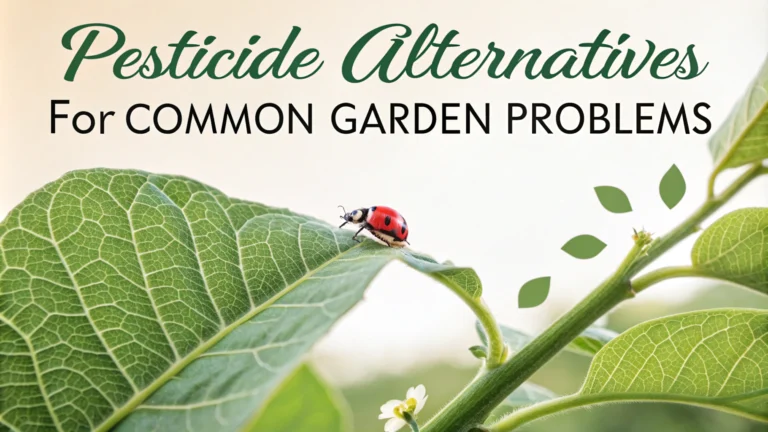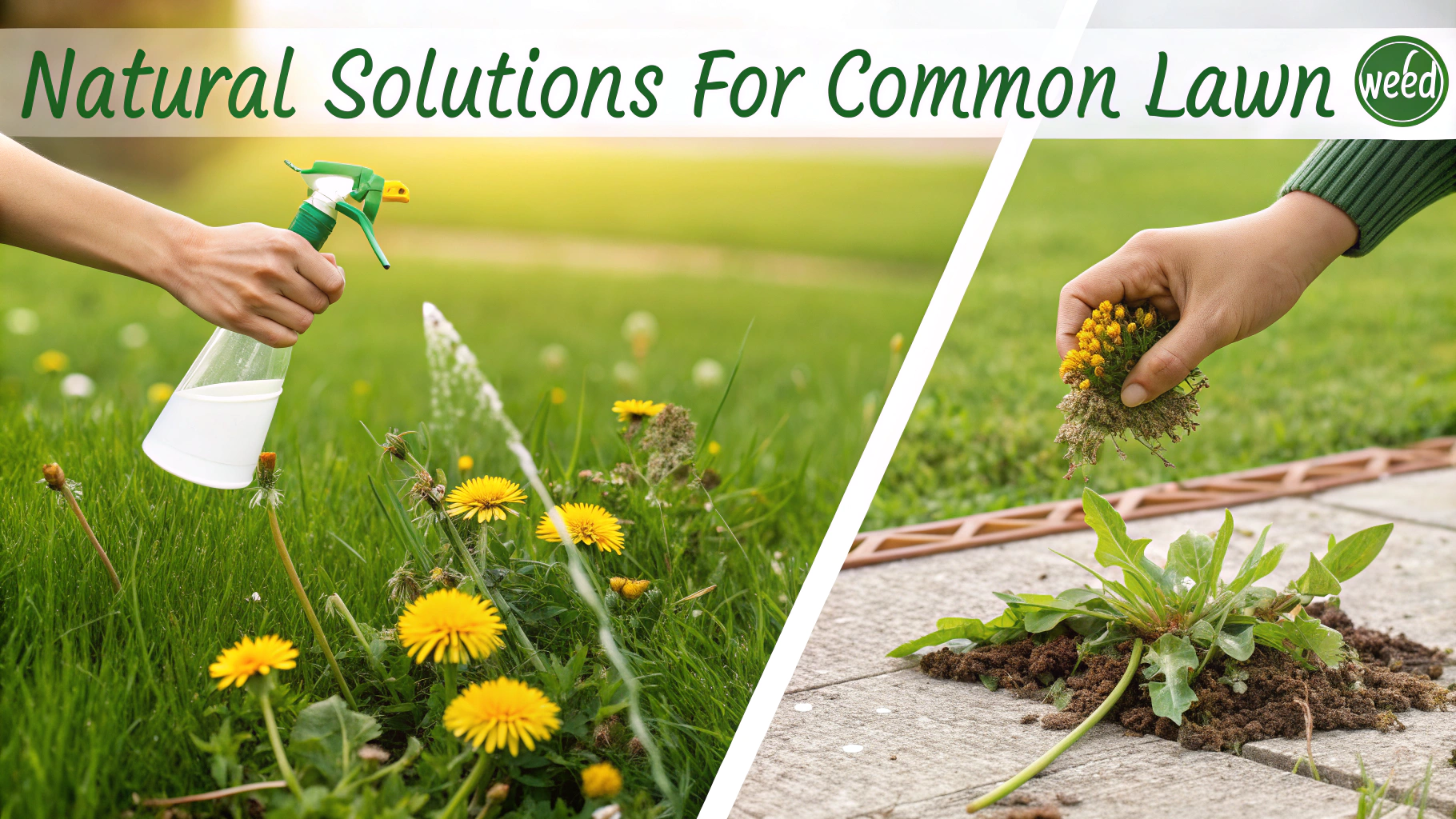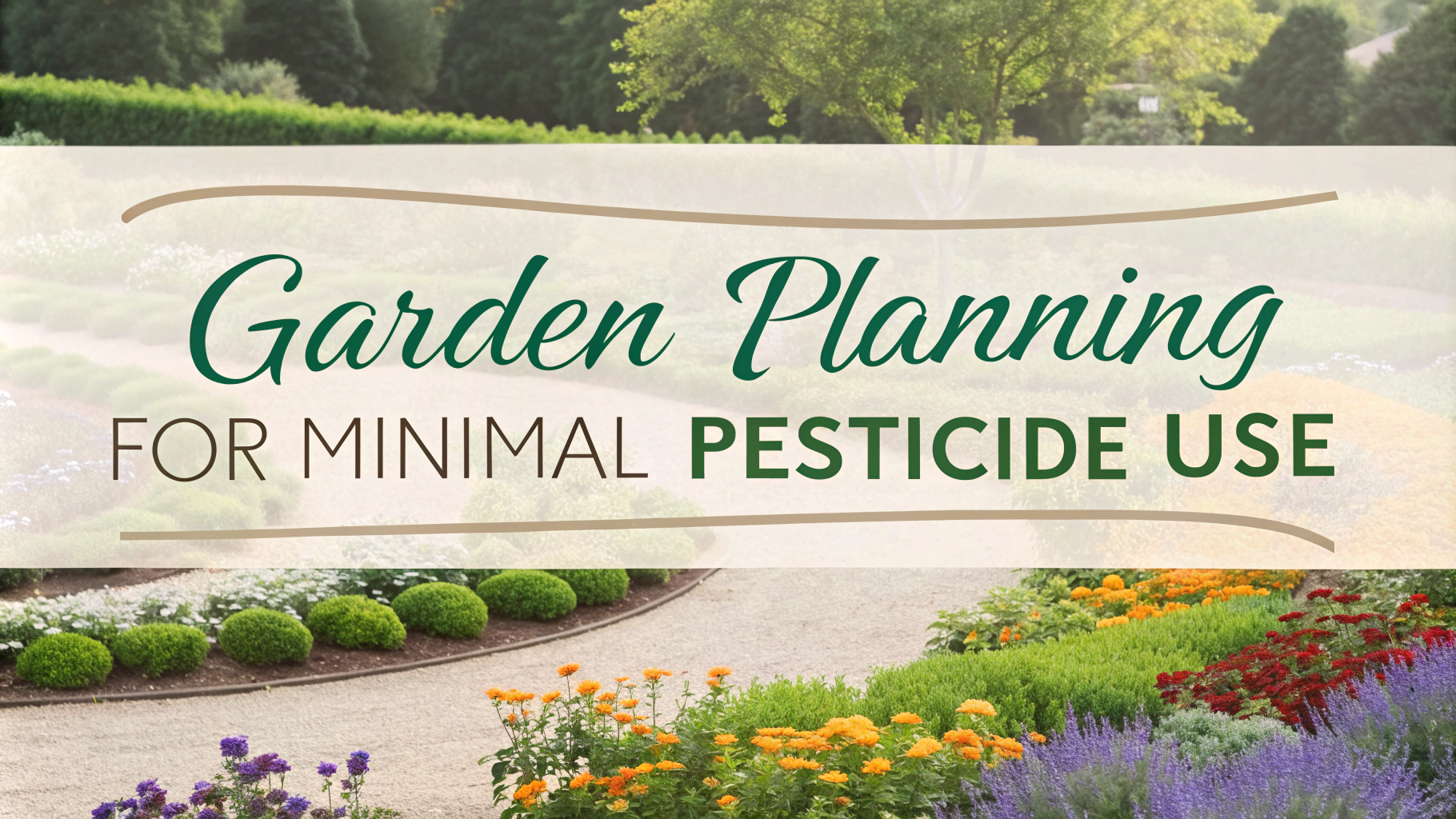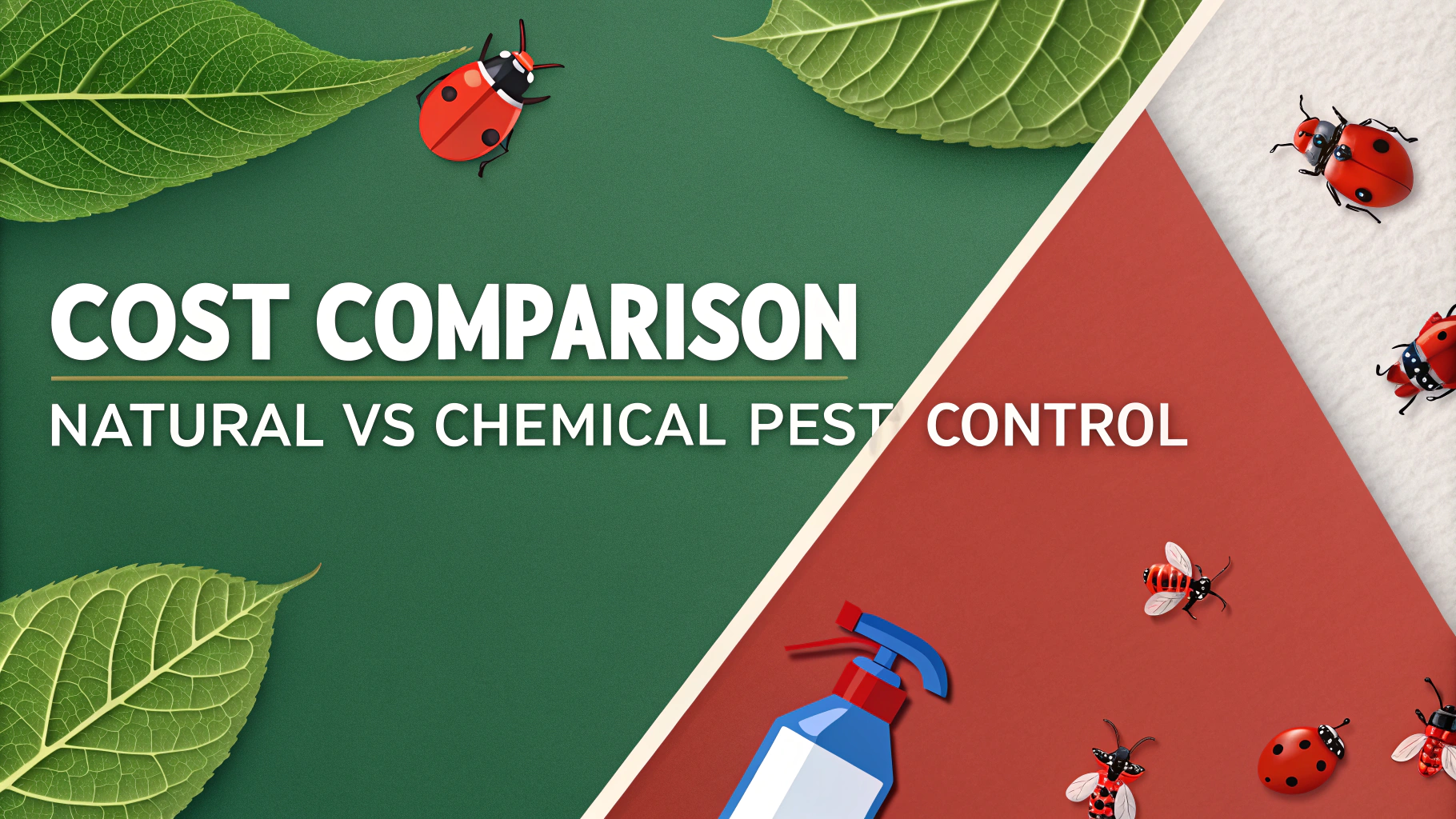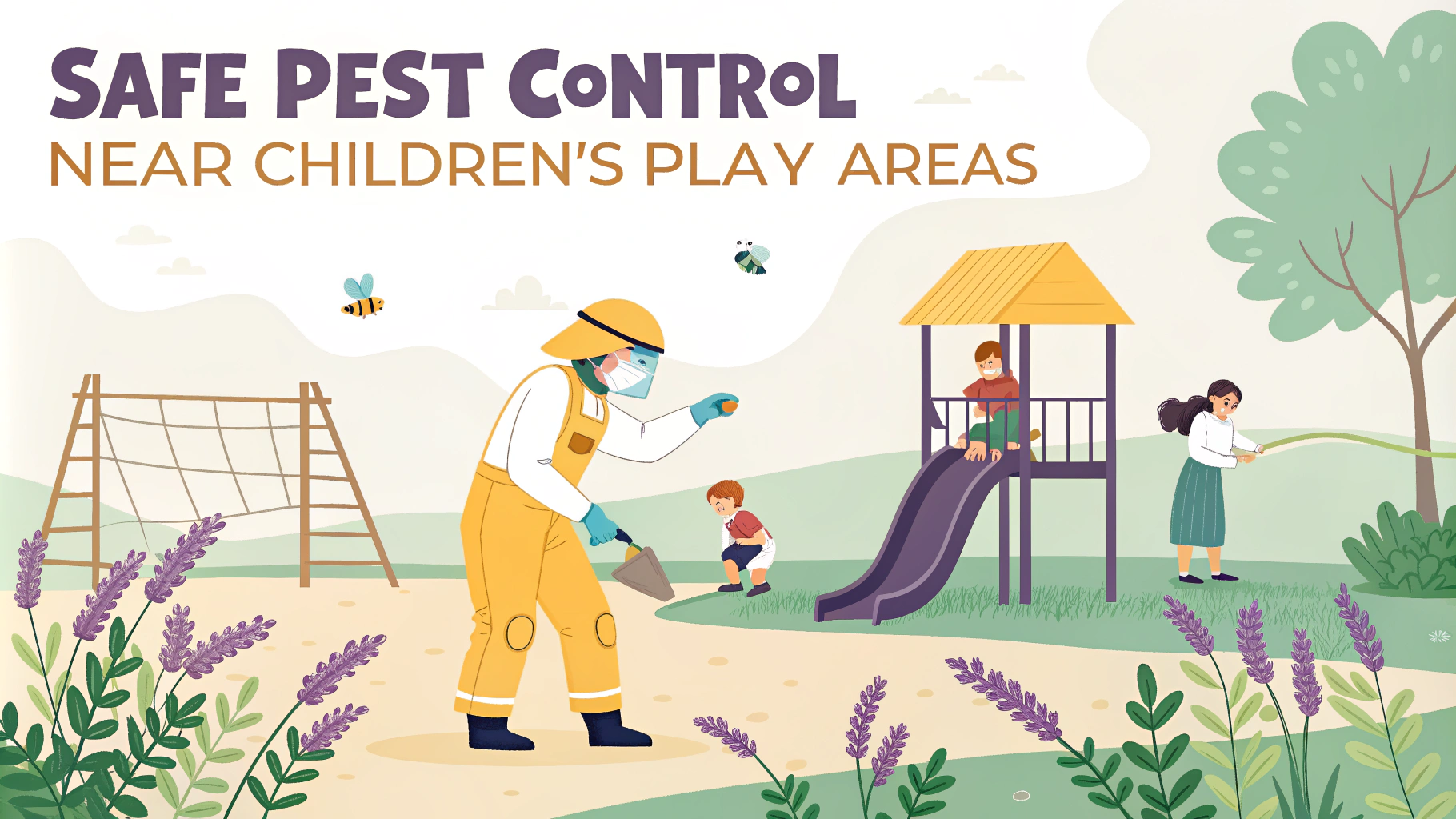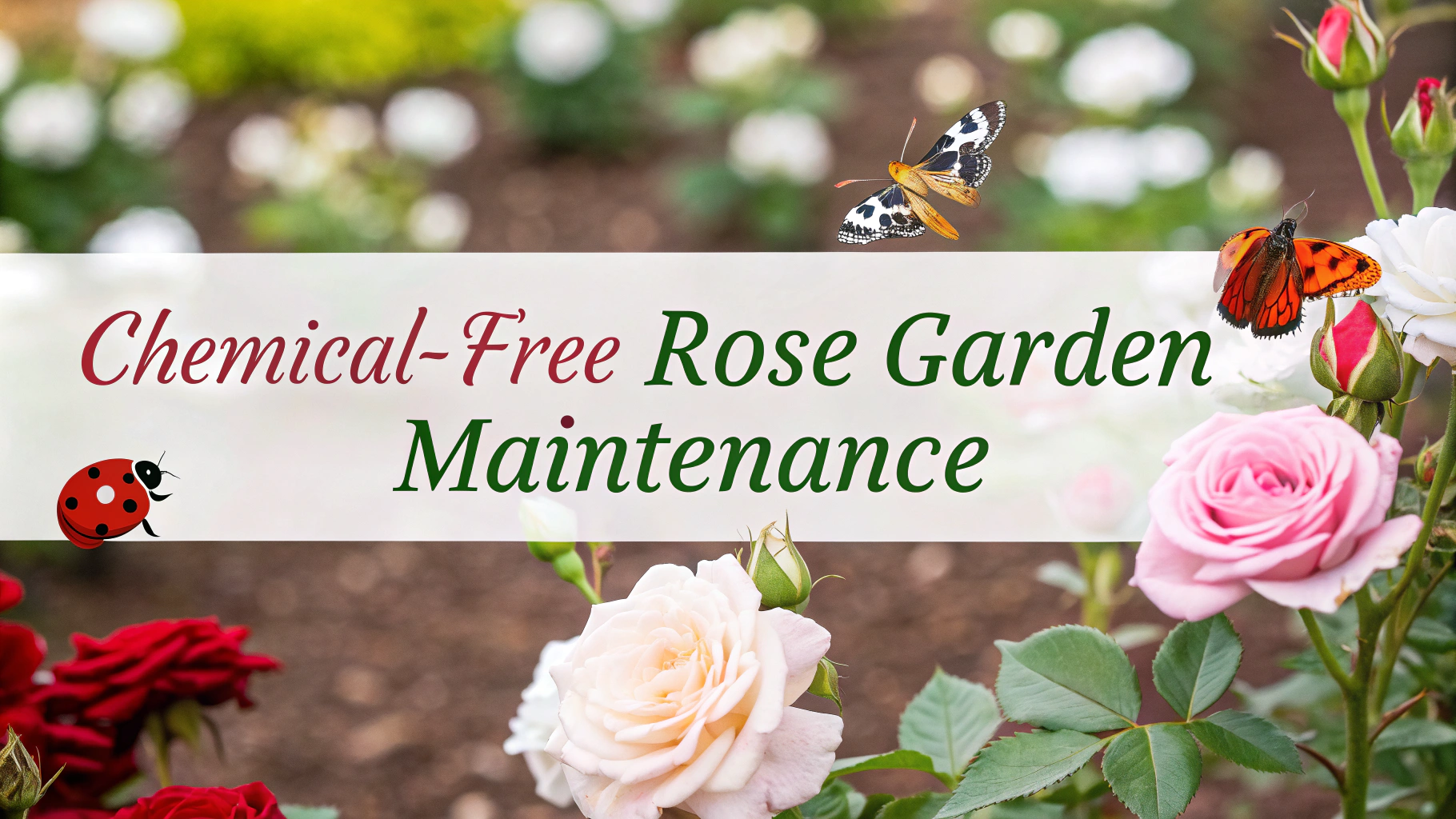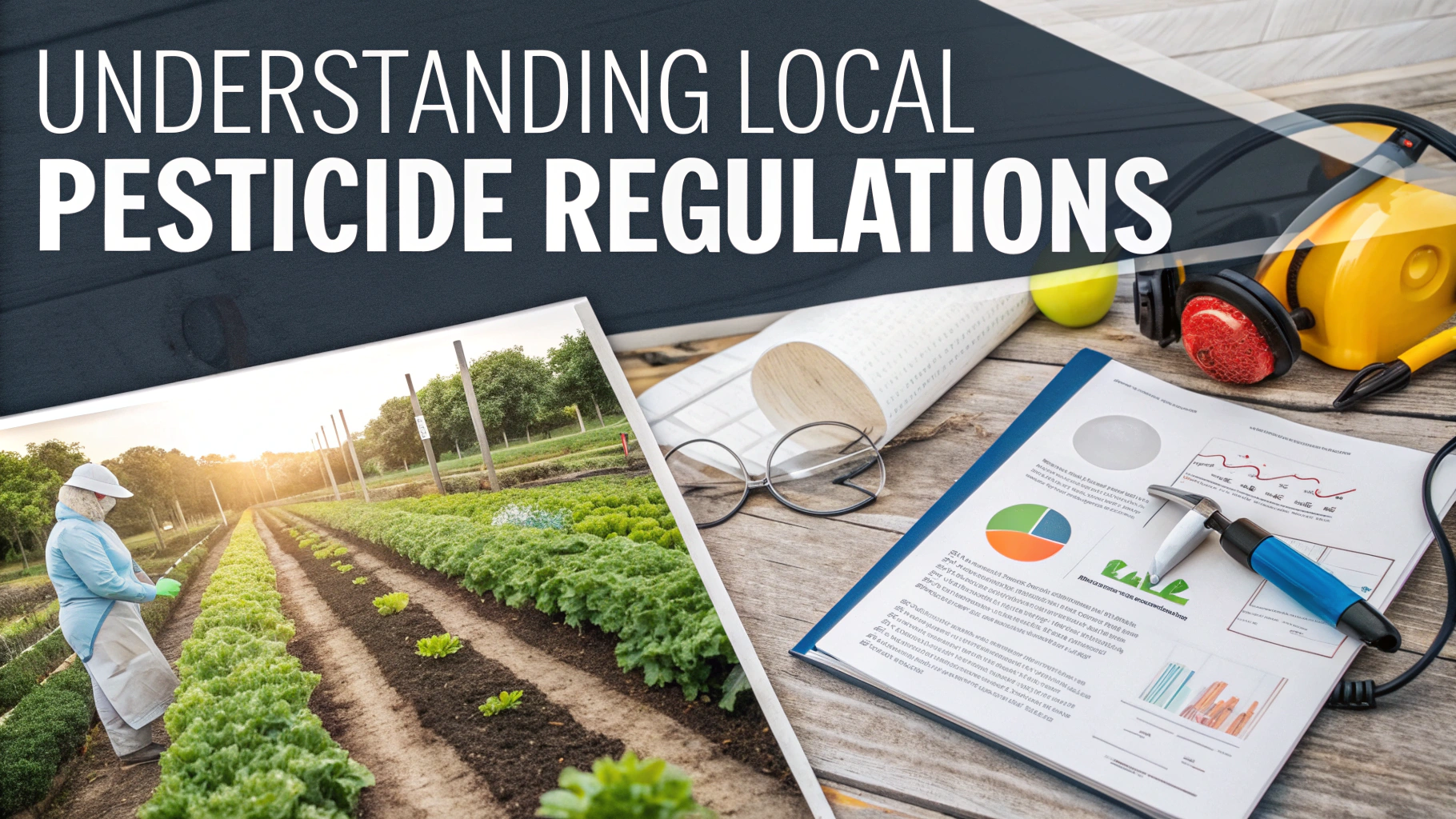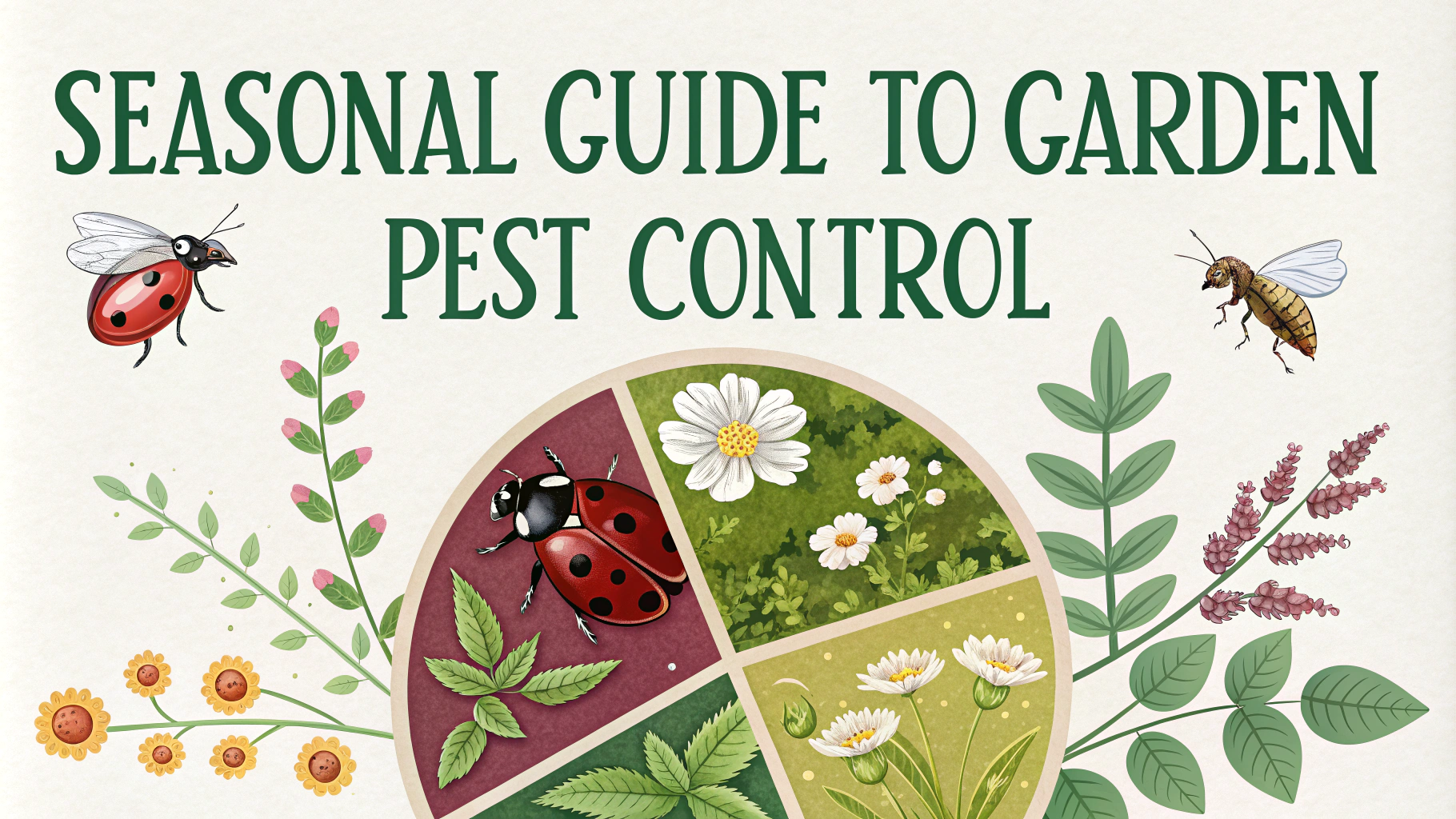Growing a garden without harmful chemicals is easier than you think with these natural pest control alternatives.
Natural Pest Deterrents
- Companion Planting
- Marigolds near tomatoes repel nematodes
- Basil protects against flies and mosquitoes
- Nasturtiums deter aphids and whiteflies
DIY Natural Sprays
- Garlic Spray: Mix 4-5 crushed garlic cloves with 2 cups water, strain after 24 hours
- Soap Spray: 1 tablespoon liquid soap per quart of water
- Neem Oil Solution: 2 teaspoons neem oil + 1 teaspoon liquid soap per quart water
Physical Controls
Installing row covers provides a barrier against flying pests while allowing sunlight and water through.
Hand-picking larger pests like caterpillars and beetles during morning hours proves highly effective.
Copper tape around plant beds creates a barrier that slugs and snails won’t cross.
Beneficial Insects
| Insect | Controls |
|---|---|
| Ladybugs | Aphids, mites |
| Praying Mantis | Moths, beetles |
| Parasitic Wasps | Caterpillars |
Prevention Methods
- Maintain healthy soil with regular compost additions
- Practice crop rotation annually
- Remove diseased plants immediately
- Water early morning to prevent fungal issues
Common Problems and Solutions
- Aphids: Spray with strong water stream or apply diluted soap solution
- Tomato Hornworms: Plant dill nearby and hand-pick visible worms
- Squash Bugs: Place boards near plants as traps, collect and dispose of bugs in morning
Contact your local cooperative extension service for region-specific pest control advice: Find Your Local Extension Office
Cultural Controls
- Plant Timing
- Plant early or late to avoid peak pest seasons
- Coordinate planting with natural enemy cycles
- Use succession planting to minimize crop loss
Soil Management
- Soil Health Practices
- Add organic matter regularly
- Maintain proper pH levels
- Encourage beneficial soil microorganisms
- Mulching Benefits
- Reduces weed competition
- Conserves soil moisture
- Creates barriers for soil-dwelling pests
Garden Design
Create diverse plantings with multiple species to confuse pests and provide habitat for beneficial insects. Include flowering plants for year-round nectar sources.
Conclusion
Natural pest control requires a holistic approach combining multiple strategies. While it may take more initial planning than chemical solutions, these methods create a sustainable, healthy garden ecosystem that becomes increasingly resilient over time.
Start with prevention methods, incorporate physical barriers where needed, and use natural sprays as a last resort. Monitor your garden regularly to catch problems early, and remember that some pest presence is normal in a healthy garden.
Key Takeaways:
- Focus on prevention through healthy soil and proper plant care
- Combine multiple control methods for best results
- Work with nature by encouraging beneficial insects
- Accept that perfect pest control isn’t the goal – balance is
FAQs
- What are the most effective natural alternatives to chemical pesticides for general garden pests?
Companion planting with marigolds, neem oil, garlic spray, diatomaceous earth, and beneficial insects like ladybugs and praying mantises serve as effective natural pest control methods. - How can I control aphids without using synthetic pesticides?
Mix 2 tablespoons of liquid soap with 1 quart of water to create an insecticidal soap spray, or introduce ladybugs and lacewings as natural predators. Strong jets of water can also dislodge aphids. - What natural methods work best for controlling caterpillars on vegetables?
Bacillus thuringiensis (Bt), a natural bacteria, effectively controls caterpillars. Hand-picking, encouraging birds, and using row covers during peak butterfly season also work well. - How do I prevent fungal diseases without chemical fungicides?
Maintain proper plant spacing for air circulation, water at soil level, apply compost tea, and use baking soda solutions (1 tablespoon per gallon of water) as a preventive spray. - What are effective organic solutions for dealing with slugs and snails?
Copper barriers, coffee grounds, eggshell barriers, beer traps, and iron phosphate baits are proven organic methods for controlling slugs and snails. - How can I naturally control spider mites in my garden?
Regular misting with water, introducing predatory mites, and neem oil applications effectively control spider mites. Maintaining proper humidity also helps prevent infestations. - What are safe alternatives for controlling root-knot nematodes?
Plant marigolds as a cover crop, use chitinous amendments like crushed shellfish shells, practice crop rotation, and add organic matter to promote beneficial nematodes. - How do I manage whiteflies organically?
Yellow sticky traps, insecticidal soaps, neem oil, and encouraging natural predators like parasitic wasps are effective organic control methods for whiteflies. - What natural methods work for controlling cucumber beetles?
Row covers, kaolin clay sprays, companion planting with radishes and nasturtiums, and manual removal in early morning when beetles are sluggish are effective control methods. - How can I prevent powdery mildew without chemical sprays?
Mix 1 tablespoon of baking soda with 1 tablespoon of liquid soap and 1 gallon of water as a preventive spray. Maintain good air circulation and avoid overhead watering.
